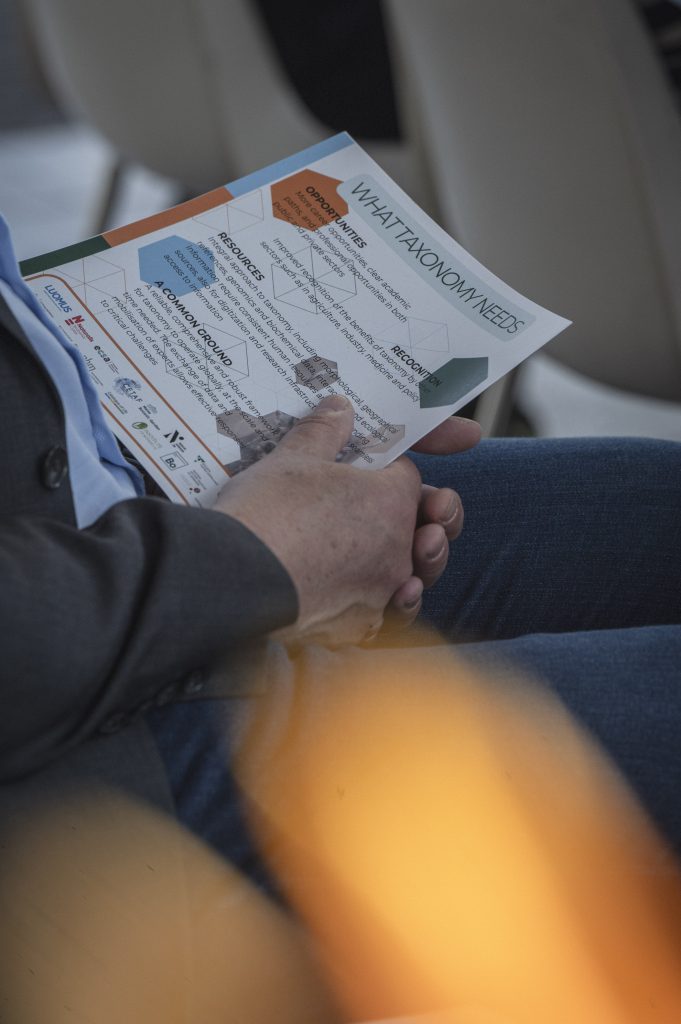Celebrating the first Taxonomy Recognition Day. The continent-wide event marks a milestone in advancing the recognition and appreciation of taxonomy’s critical role in our society, including the preservation of biodiversity.
Taxonomy is the science of naming and classifying organisms. This language is the foundation of many scientific disciplines.
TETTRIs, the pioneering EU-funded initiative dedicated to enhancing taxonomic capacity across Europe, celebrated the first Taxonomy Recognition Day on May 23, 2024.
In 10 European countries, 16 institutions hosted events to jointly celebrate Taxonomy by inviting leaders from academia and industry, policymakers and journalists to explore and underline the profound impact of taxonomy in a wide array of disciplines.
This landmark event marked a significant milestone in elevating the recognition and appreciation of taxonomy’s vital role in preserving global biodiversity.
Timed to honor the birthday of Carl Linnaeus, the revered “father of Taxonomy,” May 23rd Taxonomy Recognition Day was created to spotlight taxonomy’s indispensable role in our everyday lives, conservation efforts and many industrial practices. By bringing together multi-sector stakeholders, the TETTRIs community kick-started talks to cement the sustainable integration of taxonomy.
Highlights of the Day:
Europe-wide Celebrations: From Paris to Prague, Copenhagen to Crete, and places in between, multiple cities hosted a series of events, drawing leaders from academia, industry, policy, and media to explore and emphasise taxonomy’s profound impact.
Public Engagement: Institutions across 10 countries and 17 prestigious organizations opened their doors, offering tours, interactive sessions, and educational programs to engage the public in understanding the significance of taxonomy.
Industry and Academic Insights: Experts discussed the critical role of taxonomy in fields such as agriculture, business development, medicine, and cosmetics, highlighting its foundational basis for biodiversity protection (#NameItToSaveIt).
Future Initiatives: The event is the first of a yearly occurrence. Conversation, meeting and networking from this year will go into planning an even larger scale festival next year, with the aim of integrating taxonomy into multiple sectors for the sustainability of our conservation efforts.
“May 23rd is the birthday of Carl Linneaus who said, “If you do not know the names of things, the knowledge of them is lost, too.” We are losing species at an unprecedented rate. To safeguard nature, we need more tools and capacity for accurate species recognition. This is why Taxonomy Recognition Day is not just a celebration; it’s a call to action,” said Marta Leon, project manager of the TETTRIs project.
The event successfully highlighted the relevance of taxonomy across various sectors and its integration into daily life, fostering a positive move towards greater support for taxonomists and their invaluable work. It set the stage for future initiatives and partnerships aimed at enhancing taxonomic research and education.

Here’s what happened within the TETTRIs consortium to mark Taxonomy Recognition Day:
BELGIUM
Consortium of European Taxonomic Facilities teamed up with the Royal Belgian Institute of Natural Sciences to bring together members of the European Commission on a unique tour of the taxonomic collections. Members of the public could see a special poster session highlighting taxonomic work conducted in Belgium. Read more here!
Meise Botanic Garden opened doors to hundreds of invited guests including politicians, NGO’s, societies and the public. The significance of taxonomy was in focus during tours and talks.
FINLAND
Finnish Museum of Natural History hosted the major of Helsinki, media and the public in an afternoon of tours, info sessions and discussions on species information data.
AUSTRIA
Natural History Museum of Vienna hosted a roundtable with politicians, researchers and educators to discuss the importance of integrating taxonomy into different sectors.
GERMANY
Free University of Berlin – Botanic Garden and Botanical Museum Berlin gave invited guests the opportunity to meet taxonomists and find out the importance of the science.
State Museum of Natural History Stuttgart highlighted career opportunities in taxonomy to students.
SWEDEN
Gothenburg National History Museum, Gothenburg University, and the Gothenburg Botanical Garden brought together citizens, politicians and educators for a tour of the facilities and Bioblitz
Västra Götaland Regional highlighted the need to educate the next generation of taxonomists, and what happens if we lose the skills of species recognition.
CZECH REPUBLIC
Institute of Botany of the Czech Academy of Sciences invited school students to a special event around plant taxonomy. The first complete Photographic Atlas of Plants of the Czech Republic was presented. The book, created with the collaboration of scientists from the Institute of Botany, features around 3,100 plant species in over 8,000 photographs. A total of twenty botanists from four universities, two research institutes, and two museums, along with over 60 photographers, are contributing to this project.
FRANCE
Musée National d’Histoire naturelle in Paris had 6 talks on taxonomy, including one of forensic entomology to a room of media, the public and a minister of agriculture.
GREECE
Natural History Museum of Crete-University of Crete invited the minister of education and of the environment to visit the island. Together with the media and the public, they discussed the importance of taxonomic work with examples of the practical implementations of species recognition.
DENMARK
Natural History Museum of Denmark kick started talks to bring biological literacy to the agenda in the Danish school system.
ITALY
University of Florence celebrated Taxonomy Recognition Day along with their 100-year anniversary with an educational event and an open invitation to participate in pollinator monitoring schemes.
Stay informed on the latest developments and announcements via official TETTRIs channels:
@Tettriseu (Facebook, Twitter, Instagram, and LinkedIn)

